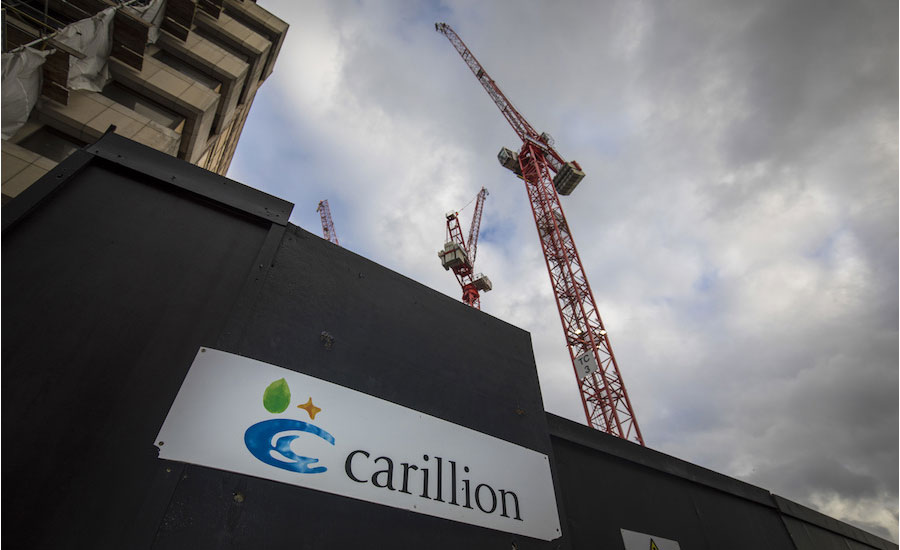After a weekend of unsuccessful talks with creditors, lenders and government officials, the U.K.'s second largest contractor, Carillion PLC, went into compulsory liquidation on Jan. 15. The company had racked up huge debts of about $2.1 billion following losses on key contracts.
"This is a very sad day for Carillion,” said Chairman Philip Green. Despite months of “huge efforts” to restructure the debt-burdened firm, “we have been unable to secure the funding to support our business plan."
“There is no prospect of any return to shareholders.”– PWC
The rapid demise has sent shock waves through the UK construction and government sectors.
UK government officials have called for "a fast-tracked investigation" into the collapse including "the behavior of executives both past and present," says an Associated Press account.
Carillion employs around 20,000 staff in the U.K. and another 23,000 in Canada and the Middle East. Support services accounted for half its 2016 sales of $7.2 billion; construction in the U.K. and Canada represented 29%. with the Middle East accounting for the balance. The U.K business totaled about 74% of sales.
Carillion will continue operating under the control of court-appointed officials from the accounting firm PricewaterhouseCoopers LLP (PWC), which will seek to sell its assets. Employees, agents and subcontractors are to continue normal work and will be paid during the liquidation.
However, “there is no prospect of any return to shareholders,” noted PWC.
While the government refused to bail out the contractor, it will continue paying for work done under public contracts, which accounted for 40% of Carillion’s sales in 2016. The firm handled 450 public-sector services and construction contracts, including hospitals, schools, prisons and transportation systems.
Among Carillion’s joint venture partners, Kier Group PLC. says it has contingency plans on contracts—including two totaling $1.9 billion on HS2, the London-Birmingham high-speed railroad construction project now in its early stages. The two firms also have extensive highways management contracts.
Balfour Beatty PLC., which has three large highways contracts with Carillion, says it will “will continue to work with its customers and will meet its contractual commitments.” Carillion had offered it a buyout or merger proposal in 2014 but was rebuffed.
Amey plc, says it will continue work on extensive housing management contracts with the UK defense ministry.
But fears rise of broader impacts on UK construction sector.
Carillion’s woes emerged last July when the firm flagged losses of $650 million mainly relating to existing contracts in the Middle East and Canada, plus $517 million on U.K. public-private partnership deals. By November, the company forecast a 2017 debt of up to $1.3 billion.
The firm last October announced a new CEO, Andrew Davies, to reverse the slide. His original April start date had been moved up to Jan. 22.




Post a comment to this article
Report Abusive Comment